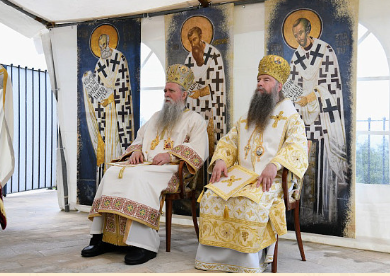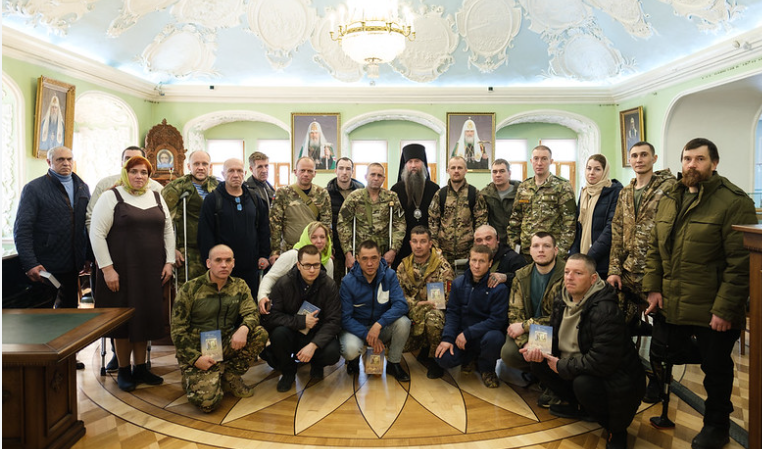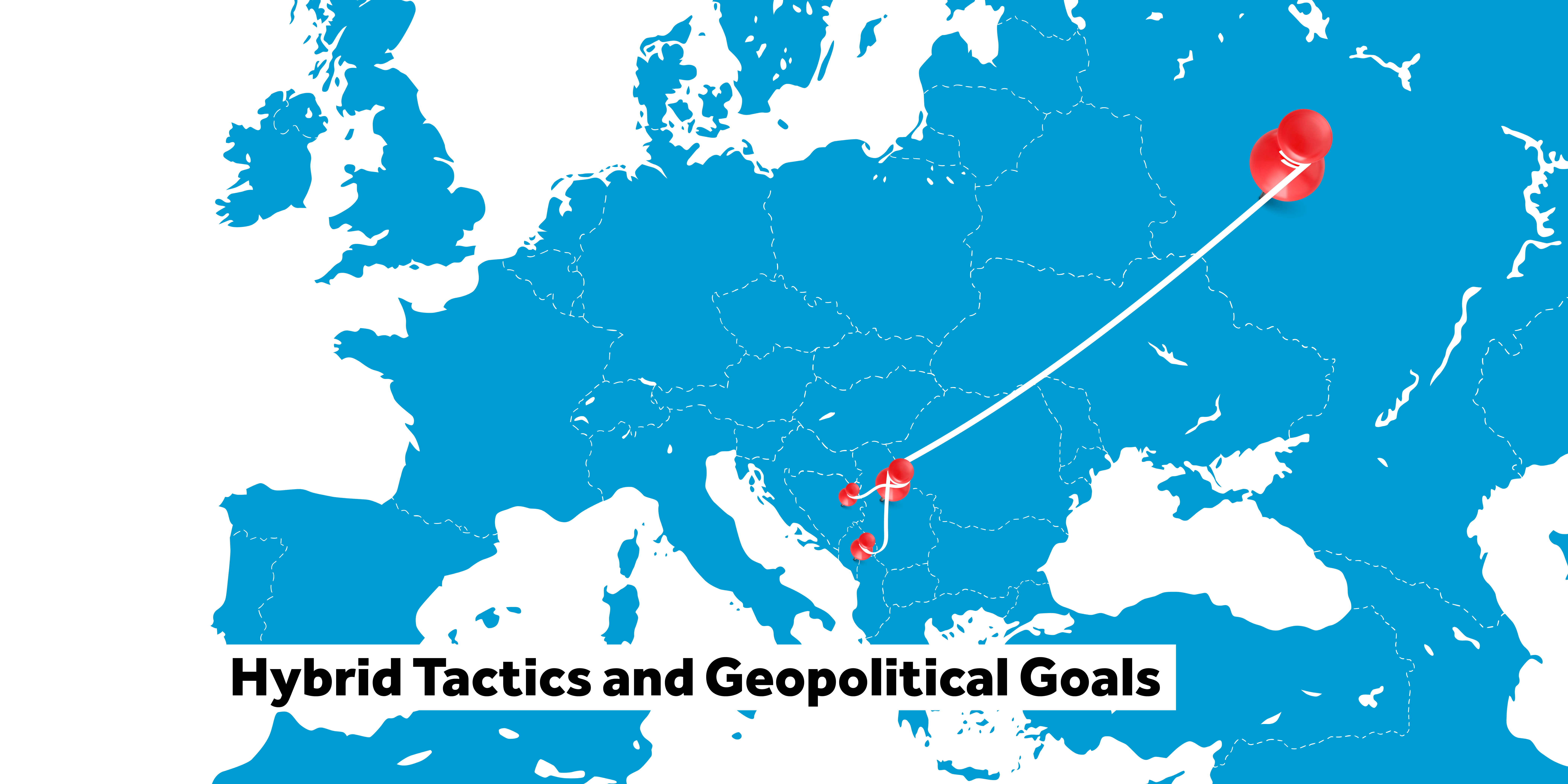In response to the Russian aggression against Ukraine, the member states of the European Union (EU) expelled over 550 Russian diplomats from February 2022 to the end of 2023. Given that Russian state media are under EU sanctions and the space for hybrid activities has been reduced, Russia has opted for a new tactic to undermine Western democratic processes. NATO’s statement addressing concern about Russia’s malign activities, including sabotage, cyber-attacks, and disinformation, indicates that covert operations in Europe are a mainstay of Putin’s regime’s actions. Additionally, the use of proxies in all spheres of socio-political life is one of the main pillars of official Moscow in its close neighborhood.
EU and NATO
Within the scope of its possibilities and interests, Vladimir Putin’s regime targets European countries depending on the role they play within the EU and NATO. In accordance with the Russian hybrid warfare doctrine, the main targets of intelligence activities are countries through which military aid is transported to Ukraine. In January 2024, in Poland, which serves as a key transport route for the delivery of Western weapons and ammunition to Ukraine, two Ukrainian nationals were arrested under the suspicion of collaborating with the Russian intelligence services with the intent to set fire to a warehouse in Wrocław. In England, two individuals were arrested for setting fire to a warehouses in Luton. The warehouses are linked to military aid to Ukraine, and the arrested individuals are accused of collaborating with the Russian intelligence service.
In addition to disruptions in transportation and sabotage, the hand of the Russian services is evident in the cyber sphere. The German government announced on May 7, 2024, that a cyber group linked to the Russian intelligence service hacked the committee of the Social Democratic Party of Olaf Scholz. Also, on June 2, 2024, there was a hacking attack on the Christian Democratic Union (CDU). The German authorities believe that the attacks are happening in the context of the upcoming elections for the European Parliament and are part of the repertoire of Russian hybrid aggression towards Europe.
The Baltic states are facing intensified hybrid attacks. Estonia arrested two individuals in February 2024 for vandalizing World War II monuments. The individuals are suspected to be connected with Russian security services, aiming to create ethnic tensions in Estonian society and undermine Estonia’s internal security by destroying monuments.
Three Baltic states and Finland have faced navigation issues in their airspace over the past two years. The governments of Estonia and Lithuania have stated that Russia has been using GPS signal jammers since the beginning of the aggression in Ukraine, which disrupts safe air traffic for commercial flights. GPS signal jamming has led Finland to suspend flights to the Estonian city of Tartu until May 31, 2024.
Physical attacks linked to the Russian military intelligence service GRU have happened in Lithuania and Spain. Leonid Volkov, political advisor and assistant to late opposition leader Alexei Navalny, was physically attacked in Lithuania. During the presidential elections in Russia, he initiated a campaign of phone calls with Russian citizens aimed at garnering as many votes as possible against Vladimir Putin. In February 2024, the lifeless body of Maksim Kuzimov, a Russian military helicopter pilot who defected from the front line in Ukraine, was found near the Spanish city of Alicante. After his helicopter escape, the head of the Russian Foreign Intelligence Service SVR, Sergei Naryshkin, called him a moral corpse and a criminal. The scope of malign operations on European soil indicates that the Kremlin’s hybrid tactics towards the West are based on activities that instill fear and distrust in the institutions of the system. The Cold War era tactic of undermining Western democracies through the instrumentalization of security services and the use of all available resources coincides with Vladimir Putin’s statement from May 29, 2024, that all Russians must act if they are on the front line. All Russians must feel mobilized.
The Western Balkans and Montenegro
Unlike the Baltic states and EU and NATO countries, which are targets of subversive activities, Western Balkan states are the target of Russian hybrid activities in the information sphere. Due to the authoritarian tendencies of regional leaders and governments, as well as the lack of a strategy to counter foreign malign influences, the region remains fertile ground for the actions of pro-Russian proxies.
Three years after the start of the aggression, the regime of Aleksandar Vučić remains the key Russian political proxy in the Western Balkans. The backbone of pro-Kremlin narratives is formed by Russian state media Sputnik and RT Balkan, whose theses and narratives are adopted by media outlets and portals in Serbia controlled by ruling structures.
The Russian Center of Science and Culture – Russian House represents a base for spreading malign narratives in Serbia and Montenegro under the guise of strengthening cultural ties. The director of the Russian House is Russian diplomat Yevgeny Baranov. After the aggression in Ukraine, this institution organized a series of events that glorified Russia’s military campaign in Ukraine. The Russian House in Belgrade conducts active operations in Montenegro through Pavel Bushuyev, a cultural advisor at the Russian House. In August 2023, on behalf of that institution and on the occasion of the screening of the film Montenegro – The Border Between Truth and Lies in Plužine, he donated an exhibition titled The Struggle of Serbs and Montenegrins Against the Turks 1875-1878, Through the Eyes of Russian Volunteers to the Cathedral Church of Saint Makarije Sokolović in Plužine. The Russian House, the Embassy of Russia in Belgrade, and the Serbian Orthodox Church gifted busts of Alexander Nevsky to Nikšić and Plužine in December 2023. Through emotional manipulation and reviving myths, Russian propaganda constantly targets the citizens of Montenegro.
The Serbian House in Montenegro, established by the Government of the Republic of Serbia, operates based on a similar model. Cultural associations, media outlets, and NGOs whose activities undermine the civic character of the state, disseminate manipulative narratives, and employ the full range of hybrid activities towards Montenegro, are located at the headquarters of this organization. The unregistered portal IN4S and the NGO Matica Srpska, founded by the rector of the University of Montenegro, Vladimir Božović, are located in the Serbian House and are continuously working to undermine the pro-Western course of the state and disseminate pro-Russian narratives.
Moscow House, an institution with an identical description of activities to the Russian House in Belgrade, was closed in Riga (Latvia). The National Security Council of Latvia announced in January 2024 that the Moscow House served as an instrument of the Russian Federation for spreading aggressive activities, pro-Kremlin propaganda, and a reinterpretation of history that denies the existence of Latvia as a state. Latvia passed a special law that confiscates the property of the Moscow House from the Russian Federation and assigns it to the Ministry of Transport.
Even after the aggression on Ukraine, the Kremlin uses the element of religion and Orthodoxy to spread malign narratives. Although the Russian Orthodox Church is an instrument for spreading pro-Kremlin narratives, the EU has not sanctioned the clergy of that church. However, in April 2024, Estonia did not extend the residence permit of Metropolitan Eugene of the Estonian Orthodox Church of the Moscow Patriarchate. The Ministry of Internal Affairs issued a statement stating that the activities of that Church after the Russian aggression against Ukraine pose a security threat to Estonia. The main thesis of the minister is that Patriarch Eugene acted as part of Putin’s propaganda machine through statements that former Soviet states should not exist.
In Montenegro, the Serbian Orthodox Church uses religious events to promote views that polarize Montenegrin society and deny the existence of the Montenegrin nation. The arrival of Bishop Kirill of Sergyev Posad and Dmitrov representing the Russian Orthodox Church’s Diocese in Podgorica on June 3, 2024, for the solemn academy of the Serbian Orthodox Church in honor of Saint Justin of Ćelije, is indicative. Metropolitan Joanikije of the SOC and Bishop Kirill used this event to send messages about the unity of the Orthodox peoples. The narrative of traditional values and unity in faith is deeply rooted in the Kremlin’s propaganda matrix, and the SOC uses it as a foundation for constructing anti-Western narratives and messages. In 2020, the European Parliament adopted a Resolution expressing concern over attempts of the Orthodox Church in Montenegro to promote Russia as a protector of family values and strengthen the relationship between the state and the church.
Metropolitan Joanikije of the SOC, together with bishop Kiril of the ROC, served a religious service in Piperi on June 2, 2024, on the occasion of the day of Saint Stephen of Piperi. Metropolitan Joanikije used the joint liturgy of the SOC and the ROC to disseminate narratives that polarize society. In the context of the life of Saint Stephen of Piperi, drawing historical parallels, he stated that the Turks killed the body, while the Latins bought souls. Such narratives coming from the top of the SOC undermine Montenegro’s multi-confessional and multi-national character. Furthermore, on June 4, 2024, Metropolitan Joanikije of the SOC, Russian bishop Kirill, and bishop Jovan of Pakrac and Slavonia served the liturgy to celebrate the day of the Cathedral Church of Saint John Vladimir in Bar. Bishop Kirill, in his address, said that it is God’s blessing that our people have had centuries-old cooperation, unity, and mutual assistance. The DFC highlighted the relationship of Bishop Jovan Ćulibrk of Pakrac-Slavonia with Russian military structures in the analysis Behind the European Scenes: A Network of Power and Influence.

Bishop Kirill of Sergiyev Posad and Dmitrov has, on multiple occasions, promoted the Russian aggression in Ukraine. At the New Year’s liturgy on December 31, 2024, he prayed for the leadership of Russia and the army on the battlefield, highlighting a desire to end the spiritual and informational war being waged against the Church and the homeland. Furthermore, on March 22, 2024, he received participants of the special military operation at the premises of the Theological Academy. During that occasion, Bishop Kirill spoke about the members of the Brotherhood of the Holy Trinity Monastery who participated in the Great Patriotic War and found God. Russian propaganda utilizes parallels in the narrative between the Great Patriotic War (The Soviets’ fight against Nazi Germany in World War II) and the aggression against Ukraine. President of the Russian Federation Vladimir Putin also drew parallels with the Great Patriotic War in an interview with Tucker Carlson. In May of this year, Kirill visited the wounded soldiers at the Thirty Military Hospital of the Central Military District and met with the members of the Airborne Forces (RAF).

The tactics of the Kremlin evolved and adapted to the new situation following the aggression in Ukraine. The reduced space for political and diplomatic action has forced the Kremlin to significantly increase the scope of hybrid operations on European soil. The subversive actions of the Russian regime are particularly evident in NATO member states that provide strong support to Ukraine. However, the actions of the Kremlin in Montenegro are primarily based on hybrid operations in the information sphere. Montenegrin institutions have not provided an adequate response to counter the malign influence coming from Russia. This is evident in both the DFC’s public opinion research and the NATO Secretary General’s report, indicating a significant decline in support for the Alliance among Montenegrin citizens. The main proxy actors for disseminating pro-Russian narratives, among whom are political parties that make up the parliamentary majority in Montenegro and the SOC, are strengthening anti-Western sentiment in Montenegrin society. The announced government reconstruction could serve pro-Russian proxies to consolidate positions of power, as well as to polarize and create additional tensions in society through initiatives to amend the Law on Citizenship or proposals to amend the Constitution regarding the official language. Such activities, together with the announced resolution on the genocide in Jasenovac, can only slow down or, in the worst case, block Montenegro’s EU integration. The diversion of Montenegro, as well as the entire Western Balkan region, from the European path, is the primary geostrategic goal of the Russian regime. This thesis was confirmed by the Russian Ambassador to Montenegro, Vladislav Maslenikov, who stated that the enlargement of the EU to the Western Balkans means drawing these countries into confrontation with Russia.

